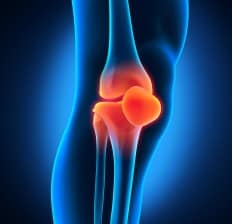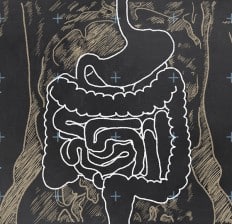What Is Hummus? 8 Reasons to Eat It Every Day!

What is Hummus?
Hummus is a creamy, thick spread made primarily from mashed chickpeas and a few other healthy ingredients that has become popular worldwide over the past couple of decades. It has long been enjoyed in Middle Eastern and North African countries and today in commonly eaten across North America and Europe too.Now gaining popularity in India!!
I
If you’re new to hummus and are still wondering, “what is hummus exactly?”, then read on to find out what it’s all about why you should ideally be eating it everyday.
The Rich History of Hummus
Hummus has a rich tradition- some even refer to it as an “ancient” food that has a history of being consumed by important historical figures in the Middle East.
According to ancient scriptures, hummus- at least as we know it today- was first consumed in Egypt around the 13th Century, although the recipe used at this time differed from today’s because it omitted tahini and used other nuts instead.
Today hummus still plays a major part in the diet of many healthy populations living around the world, mainly in the Middle East.
Hummus is commonly consumed with every single meal in Israel, is frequently included in all “mezzeh tables” in Syria and Turkey, is eaten most days for breakfast along with bread in Palestine and Jordan, and is still enjoyed in Egypt and many Arabic nations in a variety of meals too.
Is Hummus Healthy?
Mediterranean and Middle Eastern populations have been consuming good-quality olive oil and tahini for thousands of years. This type of diet that is still eaten in these regions today (which also frequently includes other hummus ingredients like beans, lemon, and garlic) has been shown to be very anti-inflammatory, and we know that inflammation is the root cause of many chronic disease.
Eating a diet similar to these healthy populations can help to lower cholesterol and triglycerides levels, to reduce symptoms of rheumatoid arthritis, and to lessen the chance of developing Alzheimer’s disease, cancer, cardiovascular disease and diabetes.
So is hummus healthy? If you make homemade hummus with real ingredients or buy a quality store bought hummus then yes!
Basic hummus recipes contain 6 healthy ingredients: chickpeas, olive oil, garlic, lemon juice, sea salt, and tahini.
Flavored types of hummus- for example, popular types like roasted red pepper or Kalamata olive hummus which you may have seen in supermarkets- has additional ingredients that are mixed into the basic hummus recipe described above.
This is good news because it keeps the tastes of hummus interesting and offers a wide variety of options.
8 HEALTH BENEFITS OF HUMMUS:
1. Good Source of Plant-Based Protein
What is hummus good for? To start, hummus is an excellent protein source for vegeterians, vegans, and omnivores too. Chickpeas, which are the base of nearly all hummus recipes, are high in protein which can help to make you feel full after consuming them. The feeling of satiety therefore makes you less likely to snack (especially on junk food) between meals.
Because hummus is often eaten with pita bread or another type of whole grain, the chickpeas and grains together make up a “complete protein”, meaning they contain all essential amino acids that are necessary for the body to acquire from food and to then use for energy.
Tahini, made from ground sesame seeds, is also a great source of important amino acids (specifically one called methnenoin), which allows tahini to create another complete protein when combined with chickpeas, similarly to chickpeas and grains do.
2. Fights Illness & Disease
Beans, and chickpeas in particular, have been shown to help balance cholesterol levels, reduce hypertension, and to protect against heart disease. In fact, hummus is commonly eaten in many Mediterranean nations that experience great health, low rates of cardiovascular disease, and longevity- Greece and Turkey being two of these.
This may be due to the high fiber content in chickpeas, which helps people to avoid overeating and gaining harmful excess weight, especially around the organs. Beans also help to keep the arteries clear from plaque build-up, decreasing the chances of cardiac arrest and stroke. In fact studies show that having just one daily serving (about 3/4 cup cooked) of beans of any kind can help to decrease chances of a heart attack and to help balance “bad” LDL cholesterol.
Chickpeas have also been shown to have protective properties against cancer, in particular colon cancer. This is due to chickpeas’ ability to keep the digestive system, including the colon, free from harmful bacteria and toxic build-up, since the beans’ fiber helps to keep waste moving out of the body quickly.
Additionally, a diet rich in all beans has been shown to reduce hyperglycemia and to help balance blood sugar levels. This decreases the chance of developing diabetes or insulin resistance. In fact, populations who traditionally ate beans often, but then switched to diets that contained less beans, suffered from much higher rates of disease. Once reintroducing beans back into the diet, these populations experienced significantly less issues balancing blood sugar.
3. Decreases Inflammation

Inflammation is the body’s natural defense to move toxins out of the body. However, when your body has a high level of inflammation, it indicates that you body has been trying to overcome food, environmental or medicinal toxins. Foods that help reduce inflammation also help in reducing the chance of arthritis and disease and they help to heal the body.
Hummus has both garlic, olive oil and chick peas which are all known anti-inflammatory foods. In a recent study, extracts from garlic were shown to reduce inflammation and help fight wrinkles and aging. While for centuries garlic has been used to boost the immune system and cure diseases, more studies are being conducted to understand how and what about garlic make it so effective.
Olive oil has been found to reduce inflammation in the body and can also help with healthy cholesterol levels.
Chick Peas have been found not only to reduce inflammation but also to reduce blood clots. Research done on two different varieties of chickpeas showed both effective at reducing inflammation markers.
4. Helps Digestion & Intestinal Health

Chickpeas are an excellent source of fiber, which has multiple health benefits: helping to foster a healthy digestive system, making us feel full and satisfied, improving cardiovascular health, and more .
Consuming enough fiber daily (between 25-35 grams depending on your gender and needs) is correlated with a healthy body weight and deceased chance of obesity-related diseases like type 2 diabetes, heart disease, and many more.
5. High in Vitamins and Minerals
It is hard to beat the winning combination of essential micronutrients that the ingredients in hummus has to offer! In addition to protein and fiber, the chickpeas used in hummus are high in iron, folate, phosphorus, and B vitamins (all especially important for vegetarians and vegans who may be lacking in these nutrients).
Lemon juice also contains a high level of immunity boosting vitamin C and antioxidants. Tahini has high levels of copper, magnesium, zinc, iron, phosphorus, and calcium too. And of course there is garlic too; garlic contains many trace minerals, antioxidants, and vitamins (manganese, vitamin B6, vitamin C, and selenium to name a few) and has been shown to benefit the heart and to boost immunity too.
Sesame seeds, used in making tahini, are an excellent source of various important bone-building minerals including: zinc, copper, calcium, magnesium, phosphorus, iron, and selenium. Bone loss is often a concern for people as they age, including women who go through menopause and experience hormonal shifts that can result in bone weakening, and even osteoporosis for some.
The trace mineral copper, which tahini is an excellent source of, helps to keep the skeletal structure strong by facilitating the binding of collagen to elastin, which is one important building-block of bones. At the same time, calcium may be able to help lower levels of bone loss, especially as someone ages. Zinc has been shown to be an important factor in bone development and growth and a protector of bone health.
Studies have shown that zinc deficiencies are closely tied to stunted bone growth and that zinc can contribute to bone formation and healthy mineralization in both younger people and older populations that are more at risk. 1/4 cup serving of tahini/sesame seeds provides roughly 163% of your recommended daily allowance (RDA) of copper, 25% of your RDA of zinc, and about 17% of your RDA of calcium.
7. Heart Health
Both olive oil and sesame seeds have also been shown to help reduce inflammation and to provide important antioxidants, both which play a part in maintaining heart health by keeping the structure of arteries and cell walls healthy. Finally, diets rich in beans have been shown to help protect heart health partially due to their low score on the glycemic index.
8. Boost Your Energy
Chickpeas, like all beans and legumes, contain starch, which is a complex carbohydrate that the body is able to use steadily for energy. Starches contain natural sugars called glucose, which the body uses easily for many essential functions. Unlike simple sugars- found in many products like refined flour, white bread or pasta, soda, candy, and most other processed foods- starches take an extended period of time to break down once consumed.
This means they provide “time released” energy and do not spike your blood sugar in the same way that simple carbohydrates found in processed foods do. The process of digesting and utilizing the glucose found in all beans and starches is drawn-out, keeping blood sugar stable for a while before it beings to drop back down again and you require more food.







Leave a comment